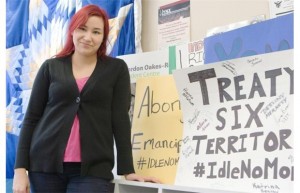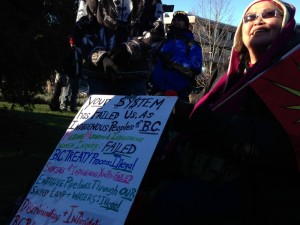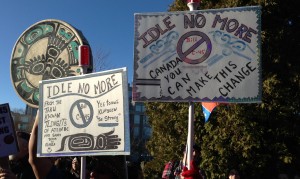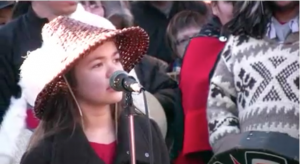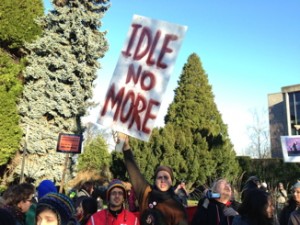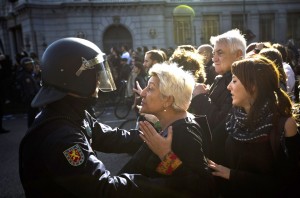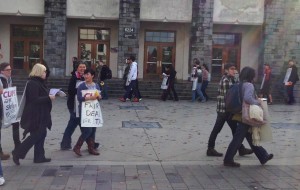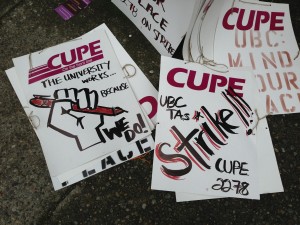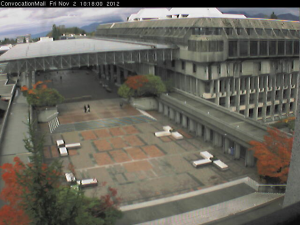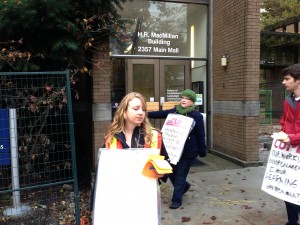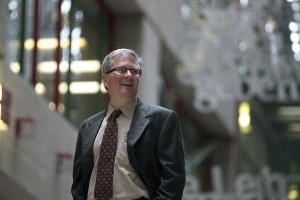Ok. There have been questions raised concerning a post on administrative salaries and increases over the past 6-7 years at the University of British Columbia. The UBC President’s Office had the Faculty Association retracting a component of a CUPE 2278 letter forwarded to faculty members, which ended in a public apology by FAUBC President Nancy Langton for not fact-checking the Union’s summary of UBC President Toope’s salary increases. So here are some facts…
One question concerns a net increase in administrators or managers in the University and average 5% annual increases in their salaries while the BC Liberal government has designated most public employees as net zero workers. At a national level over the past 3 years, BC employees have received the lowest average increases in the country, averaging just a bit over 0.3% per year. Are administrators’ salaries at UBC increasing, or how can they be, at an average of 5% per year? And why are these same administrators intent on suppressing already excessively low wages, against inflation, raising tuition and costs, etc., of Teaching Assistants?
As GTA wages at UBC have been stagnant (i.e., 0%), administrative salaries have skyrocketed. UBC President Toope’s salary was for 2010-11 depending on which UBC report is used, $528,504 (UBC’s Financial Information Act Report for Year Ended March 31, 2011) or $378,000 + $50,000 Incentive Plan + $58,408 Housing perks + others = $580,978 (UBC’s Public Sector Executive Compensation Report, 2011/12) (For comparative information across Canada, see How Much Does Your University President Make?). Using UBC’s Financial Information Act Report, from 2005, the year UBC began to basically roll over CUPE 2278 contracts, to 2011, the last year of accessible data, the President’s salary rose from $434,567 to $528,504 (22% increase). The Provost’s salary increased from $230,887 to $321,023, a whopping 39% increase! These two are comparison’s between 2005 and 2011 in the differential of salaries for the positions (e.g., President Piper’s outgoing salary and President Toope’s ongoing salary, which is a fair comparison and similar to the way initial appointment salaries are handled). The new Concordia University President’s salary ($357,000) raised eyebrows recently in Quebec on the heels of the largest and most sustained student strike in Canadian history.
Comparatively, Prime Minister Stephen Harper’s salary was for 2011, $317,574 (inc. car perk) + benefits + house perk 24 Sussex Drive, Ottawa). US President Barack Obama’s salary was for 2011, $400,000 + $50,000 expense account + $100,000 travel account + $19,000 entertainment account = $569,000). Of course, these salaries pale next to private sector University President and corporate Chief salaries. The four top Executives of UBC Properties Trust enjoy a combined $1.3m in salaries, including perks for cars.
The salary of VP Human Resources, who manages bargaining for the University, jumped between 2005 and 2011 from $191,793 to $230,704 (20% increase). The Director of Faculty Relations’ salary rocketed from $119,615 to $198,209 (41% increase). And so on. Deans have made certain that there is similar progress with their salaries. For example, the Business Dean’s salary bounced from $334,196 to $422,304 (26% increase) while the Education Dean’s salary leaped from $216,519 to $261,732 (21% increase). Through 2010, the Arts Dean’s salary quickly grew from $191,408 to $249,816 (30% in 6 years). It is no mystery why the ranks of managers at UBC have swelled in numbers over the past few years. The transition of Associate Deans and others to management via the 2010-12 Collective Agreement merely instrumented trends and ambitions.
Another question raised is why are these same administrators intent on exploiting Sessional faculty members at UBC and suppressing their already pitifully low wages? For example, the Masters of Education Technology revenue generating program at UBC, which has basically bailed the Faculty of Education out of a dire financial crisis (e.g., 130% or $1,893,015 over budget for its 270 Sessional faculty appointments in 2008-09), uses Sessionals to teach about 85% of its courses and pays them a piecemeal $242.28 per student wage. Denied office space, the Sessionals often work below the minimum wage ($10.25 / hour) after gross hours in and net wages out are calculated.

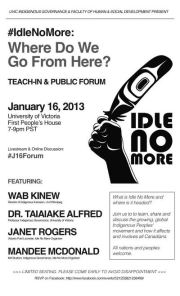
 Follow
Follow